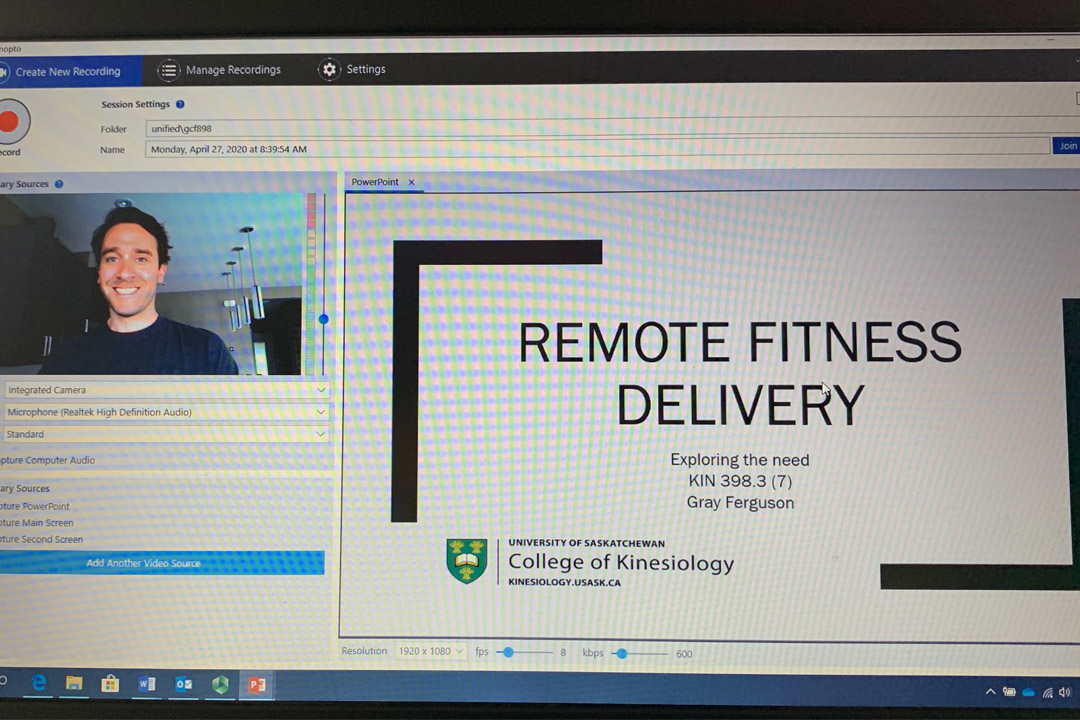
New USask kinesiology course designed to adapt to teaching fitness remotely
Starting in spring 2020, the College of Kinesiology at the University of Saskatchewan (USask) is introducing a new special topics course titled Remote Fitness Delivery, designed for third-year kinesiology students.
By Alyssa WiebeWith an increased demand for spring term courses due to COVID-19, teaching a class focused on remote fitness delivery is a very timely subject.
“Given the circumstances we all face, we were looking to develop a creative and innovative course that would be of interest to students to take as an elective and was a good fit for the exceptional expertise of we have within the college,” said Dr. Kent Kowalski (PhD), associate dean academic. “Offering a course on remote fitness delivery seemed perfect, and I’m confident Gray Ferguson has developed a course that students will enjoy.”
Ferguson is currently the program and client services co-ordinator for USask Rec in the College of Kinesiology and looks forward to bringing his education, background, and experience with fitness to the forefront of student learning. He has taught KIN 281 - Fitness Foundations for Life, for the past five years and is excited for the opportunity to explore a somewhat new and very popular topic with the students enrolled.
“The course will give an immense review on the benefits of physical activity, working with a client, and prescribing exercise to ensure students have the fundamental knowledge needed when dealing with a client,” said Ferguson, a 2008 USask kinesiology graduate.
With an admission limit of 25, the focus of the course will then shift to using technology to deliver fitness as well as talking about fitness delivery when technology is not available. Although the pandemic surrounding COVID-19 has ignited the topic, remote fitness is something that has been around for a long time in remote communities.
“We live in a world today where many people have wearable technology or smart phones on them at all times. This technology is great for individuals to track their own fitness goals, but is also very useful as exercise professionals because we prescribe exercises using it,” said Ferguson. “On the other hand, we may have clients where technology is not an option either financially, or they live in a community with limited-to-no equipment or internet. In these cases, we need to find a way to communicate efficiently and effectively with these clients to make a successful, safe exercise program. This course will explore ways to do both.”
Although in its early stages of development, part of the course plan will be to match students with another classmate and advise them on creating a step-by-step remote fitness program right from the starting stages.
“It will begin with the students gathering information from their client and performing fitness assessments and progressing to prescribing aerobic, strength, flexibility programs, and all the while being creative and adaptive to perform outside of a fitness facility,” said Ferguson.
As we continue to live in unprecedented times, it is no surprise that the new course is already filled. Creating innovative and creative ways of teaching and learning continue to be a focal point for the college.

